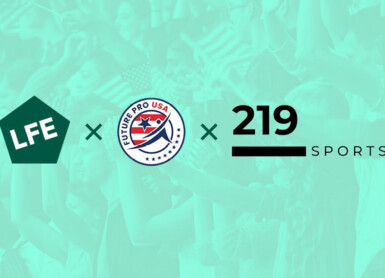Since 2014, Red Star Education has been delivering financial literacy workshops to apprentices and young professionals as part of LFE’s Life Skills Programme. Combining their experience in independent financial advising and higher education teaching, company directors Kristen and Nick Cunliffe tailor each session specifically for apprentices. Learners can use Red Star Education for advice on money management, income tax, car insurance, credit & debt and future planning.
Here are their top 10 tips for young footballers looking to make the best of their income.
1. Budget – This might seem like the most boring exercise ever but by making a budget – and sticking to it – you will not only know where your money is going but also allow yourself to project into the future and achieve your financial goals.
2. Set a financial goal. Avoid finishing your apprenticeship with nothing to show for it. Whether it is a car, holiday, or just some savings in the bank – set a financial goal, work out how much to save each month and build it into your budget.
3. Watch out for invisible spending. Small contactless payments or online subscriptions can add up to over £21 per week on average – that’s over £1000 a year. Check your bank statements to see exactly what you are spending and where – then cut back if you can.
4. Don’t say you are a student on your car insurance. Insurance companies consider you to have occupation if you are in an academy, so don’t assume you can claim to be a student. Our advice is to speak to an independent insurance broker for guidance to ensure your policy is valid.
5. Car insurance premiums WILL be more expensive for professional sports players – this is mainly because drivers whose income is dependent on physical fitness are more likely to be entitled to high compensation payments if they are injured in a car accident. This would be a very high payout for a professional footballer on a high income. Make sure to check out the cost of car insurance BEFORE you buy or lease a car to make sure you can afford it.
6. Be prepared for Income Tax – you will pay tax once your annual income is over £12,570 so whatever your income is now, or in the future, do not forget that if it is more than this per year you will pay Income Tax. You will pay National Insurance too when you earn more than £184 per week, so don’t expect to receive your full wages. The basic rate tax is 20% and National Insurance is 12%. Your budget should always be based on your NET income (after tax and other deductions).
7. Save – for saving’s sake. Even if you have no specific financial goal, or you have much more income than you need, save as much as you can. As a guide, you should aim to save at least 20% of your net income (if you earn £150 per week that would be £30).
8. Beware of scams and get rich quick schemes. There are lots of scams around, ones that even claim to be from HMRC (the tax office) trying to get your bank or other personal details. Be hyper-aware of where you send your personal details, especially online and on your phone. Also, be wary of schemes (often crypto currency or Forex trading) that claim they can make massive profits quickly. These are usually false claims and are designed to take your money off you.
9. Use your pension. We know that old age is a long way off BUT as potentially high earners at a young age do not overlook the advantages of building up your pension funds while you are still young. As well as a generous £6000 per year contribution from the PFA as a professional player, if you add to your own pension, the Government will give you tax relief. If you pay £50 into a pension, the Government adds £12.50. Whilst there are some restrictions on how much you can pay in, there are some fabulous benefits for building up pension funds and these should not be discounted because old age seems too far in the future.
10. Be careful where you get your advice. We know that as your career develops you might want an agent, manager, accountant, lawyer, or financial adviser. You might want one of each. Remember that whoever you work with will charge you fees (none of these professionals work for free) and therefore you should know how much you are paying and what services you will receive. Your relationship with advisers should be one you trust and all information about you and your finances should be treated with the strictest confidence. Remember always to ask questions before making any financial decision – a good adviser will always make sure you understand everything you are signing up for before you proceed.
More details about what Red Star Education does can be found HERE.





